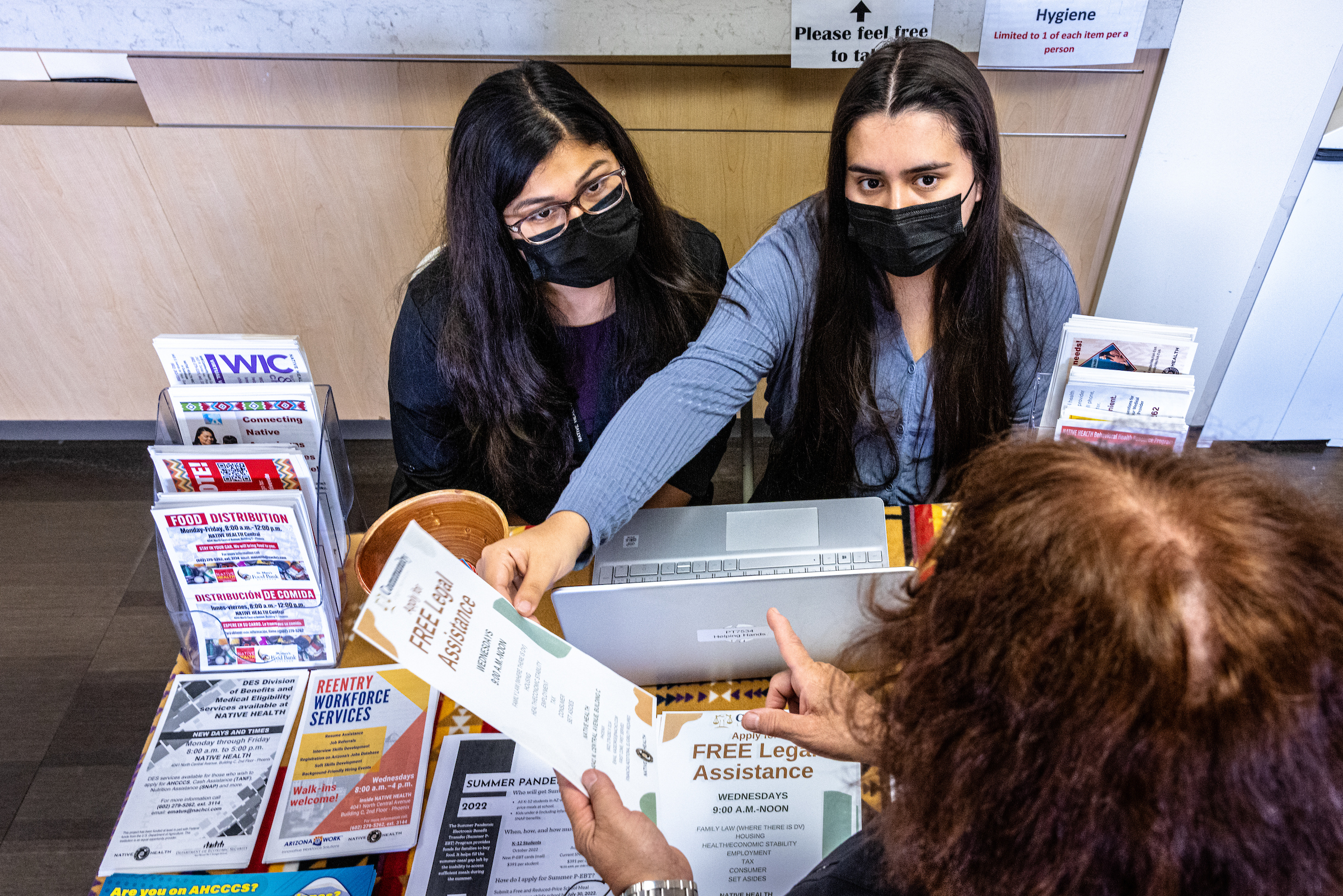ASU students connect Native Health clients to housing, food, jobs
New internship program lets undergrads work one-on-one with individuals, navigating complex problems
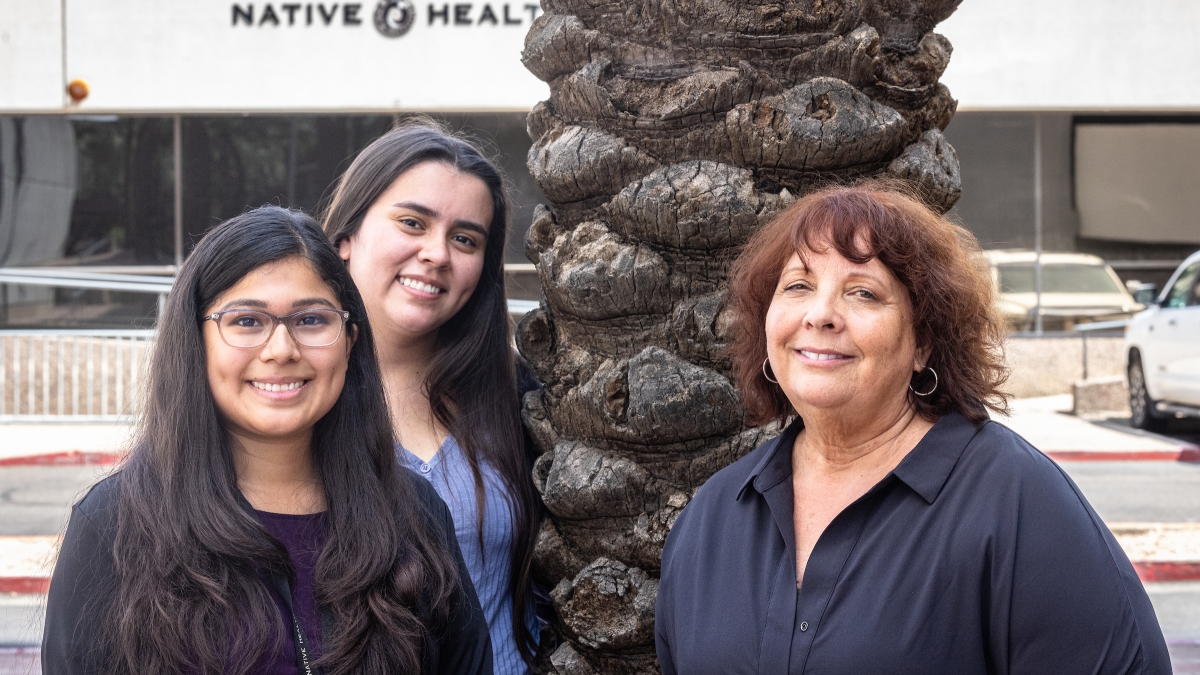
When clients come into the Native Health center — a local clinic that provides health care for urban American Indians, Alaska Natives and other individuals — they often need more than a doctor’s appointment or a prescription.
Some of them need help getting a job, or food, or housing.
Students at Arizona State University are helping these patients navigate the sometimes complicated path to finding the resources they need through an internship program in the College of Health Solutions.
The Helping Hands internship places undergraduates in the Native Health centers in Phoenix and Mesa, where they work one-on-one with clients. The program has finished its first full year.
“We wanted to find a way for our students to have meaningful engagement and to help them learn about social services and the social determinants of health in the community,” said Elizabeth Kizer, a lecturer in the College of Health Solutions and team lead for the Patient Care translational team.
“This was an opportunity to be in a clinic, meeting with clients with diverse needs and connecting them with services in the community that Native Health doesn’t have on-site,” Kizer said.
“Referring the clients to outside agencies is something that takes a lot of work away from staff, and they build a partnership so it’s a ‘warm handoff’ of the client that’s more personal.”
The partnership began last fall, with two students in the first cohort. They sat in the Native Health lobby handing out COVID-19 test kits, hand sanitizer, masks, granola bars and water bottles to walk-in clients before talking with them about what they need.
Susan Levy, communications coordinator for volunteers and community involvement, supervises the interns on-site at the Phoenix center, which includes a branch of the state Department of Economic Security.
“We see a lot of people in the lobby who aren’t just patients,” she said. “We serve the community as a whole.
“You can’t just say to them, ‘Here’s a phone number. Call the housing hub.’ They need more than that.”
Many of the clients don’t have internet access or even phones, or the minutes on their phones are limited, so even looking for help is difficult, Levy said.
“The students have been amazing and have made such a huge difference in the community that we serve, and our staff has come to rely on them.”
As interns, Fernanda Lozano (left) and Mary Steffeck meet with clients in the lobby of Native Health in Phoenix to find out what services were needed. Photo by Charlie Leight/ASU News
Fernanda Lozano, a senior who is majoring in health care administration and policy, said that when she began the internship last September, she had to learn quickly on the job.
The students spent a lot of time updating the center’s list of resources and eligibility requirements, which government agencies change frequently.
Housing is the biggest challenge.
“In Arizona, there is no really centralized way to find shelter. If you’re a family with young kids, the Central Arizona Shelter prioritizes you, but if not, you have to go and see if anything is available. It has to be in person. We would call, but no one would answer,” Lozano said.
As they went along, the students learned how to navigate the system.
“We would add notes to the notes for interns in the future, like, ‘If you call and explain this to this person, they’ll help you rather than calling the front desk,’ ” she said.
Some of the situations were tricky. One client needed domestic violence services but was undocumented and had no insurance, but Lozano was able to track down a shelter that did not require insurance.
And some of the rules are frustrating. People who get shelter services can apply for free phones. "... But to apply for free phones they require an email address, which is a barrier. How can they do that?” Lozano said.
Was it ever overwhelming?
“It was a shock because I never realized how many people were in this much need. It’s made me want to help more,” Lozano said.
Kizer said that one novel aspect is that while most degree programs require one semester of internship, Helping Hands is two semesters, so the interns mentor the next cohort during the second semester.
“So there’s continuity and training, and they can share their personal experiences and get that leadership experience,” she said.
Lozano, who was hired as a full-time resource coordinator at Native Health, said that one client is especially memorable. Early in her internship, she got a call around 8 p.m. that a woman with five kids needed shelter.
“I called the woman, and I found out that she had exhausted the goodwill of a friend and was kicked out and living in her car with her kids and had nowhere to go,” she said.
“At first I had no idea what to do. My laptop with all the information is kept at Native Health for patient privacy, so it was just me Googling different shelters.
“I started calling shelters. Some who say they’re open 24 hours actually only complete intake forms during business hours. I called 15 shelters and no one could help, so unfortunately, that night the woman and her kids had to stay in her car.”
The next morning, Lozano started again.
“I was able to get her on the priority list and into a shelter that day. I helped her to get food and a job, and as far as I know, she’s good.”
It was a shock because I never realized how many people were in this much need. It’s made me want to help more.”
— ASU senior Fernanda Lozano, one of the first Helping Hands interns
Lozano said that undergraduates who are interested in the internship should know that it’s intense.
“If you just want to get your credits over with, this is not the internship for you. This is for interns who care about people and want to make a difference in the community. You work hard, but it’s fulfilling to see the people you’ve helped,” Lozano said.
“Every day is different, and you’ll never know what you’ll walk into.”
Helping Hands is part of the Patient Work translational team in the College of Health Solutions. The college has 11 translational teams, which bring together researchers, students and clinical and community partners to untangle complex problems and create practical solutions. The Patient Work team uses a transdisciplinary approach to translate research into interventions.
Mary Steffeck, a senior majoring in medical studies, wanted to do the internship for a special reason.
“I myself am Native, so when Dr. Kizer presented the internship to me, she let me know that I could help address the health disparities in the Native American community in real time, in person, and I thought that would be a great opportunity,” she said.
Steffeck felt she was able to connect to the clients.
“I feel like there are cultural differences, and there are many social cues,” she said.
“You have to be respectful especially of the elder population. You have to make sure you’re speaking with respect regardless of the circumstances they find themselves in. Being Native and understanding the social awareness of that community was important.”
Steffeck, who wants to become a pharmacist and work for the Indian Health Service, said one client’s case has stayed with her.
“He unfortunately had just gotten out of jail and came to Native Health for help. He was struggling with addiction, which is a common thing we see not only on the reservation but in the city as well.
“Speaking with him, you could tell he wanted help. Giving him the resources and talking to him like he was human and seeing him accept the help was amazing.
“It was something that you wouldn’t do in every internship.”
Top image: ASU seniors Fernanda Lozano (left) and Mary Steffeck were among the first interns in a new partnership with Native Health in Phoenix in which they helped clients navigate complex systems to receive support service. Susan Levy, the communications coordinator for volunteers and community involvement, was their on-site supervisor. Photo by Charlie Leight/ASU News
More Health and medicine
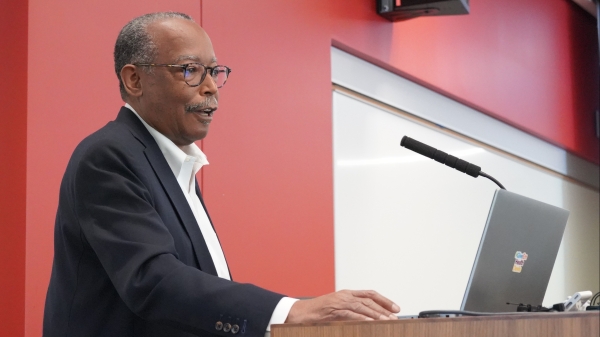
College of Health Solutions hosts visit from leading expert in genomic research
Some fortunate Arizona State University faculty, staff and students were able to gain valuable insights and perspective during a visit by one of the country’s leading figures in health and scientific…
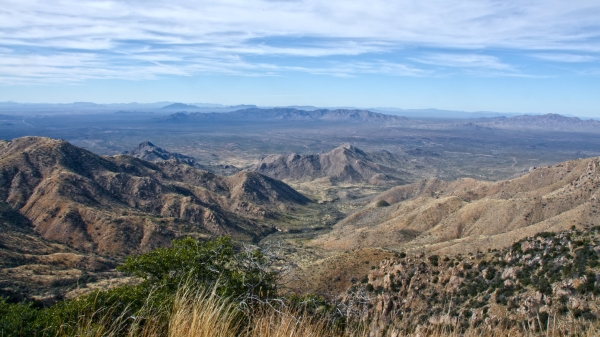
Indigenous ASU research team recommends assistance for tribal members still reeling from COVID-19’s effects
When Matt Ignacio’s tribe, the Tohono O’odham Nation, donated $1 million to Arizona State University to support COVID-19 research, he applied for some of the money to understand and report any…
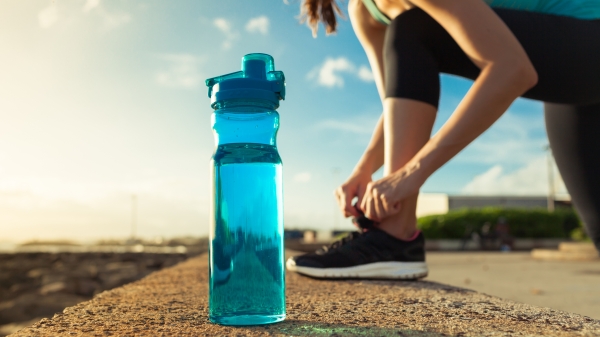
Tips for staying hydrated during Pat's Run and other outdoor activities
By Aidan Hansen Staying hydrated and listening to your body during outdoor exercise activities is crucial to one's health and safety, especially in warm climates. And with the average daytime high…
